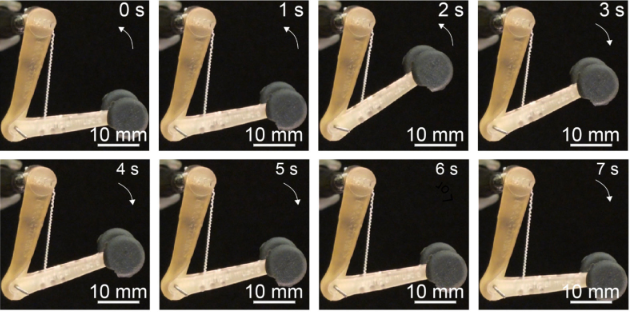
They can carry many times their own weight.
Most attempts at giving robots muscles tend to be heavy, slow or both. Scientists might finally have a solution that’s both light and nimble, though. They’ve developed fibers that can serve as artificial muscles for robots while remaining light, responsive and powerful. They bonded two polymers with very different thermal expansion rates (a cyclic copolymer elastomer and a thermoplastic polyethylene) that reacts with a strong pulling force when subjected to even slight changes in heat. They’re so strong that just one fiber can lift up to 650 times its weight, and response times can be measured in milliseconds.
The fibers can range from just a few micrometers in thickness to a few millimeters, and they can be hundreds of meters of long. You can weave other elements into the fiber, too, such as nanowires (as researchers did to measure tension), electrodes or optical fibers. A robotic limb wouldn’t need external, bulky heat sources to activate the fibers. And if you bundle the fibers, they could provide automated, precise control.
While this is still a lab experiment, there’s a lot of potential. Tiny medical robots could work on your body from the inside, while larger bots could be brawny, speedy or both. This could be particularly vital for prosthetic limbs, where hydraulics and other machinery can bog them down. An artificial limb could not only feel more natural, but offer a more comparable response time.


